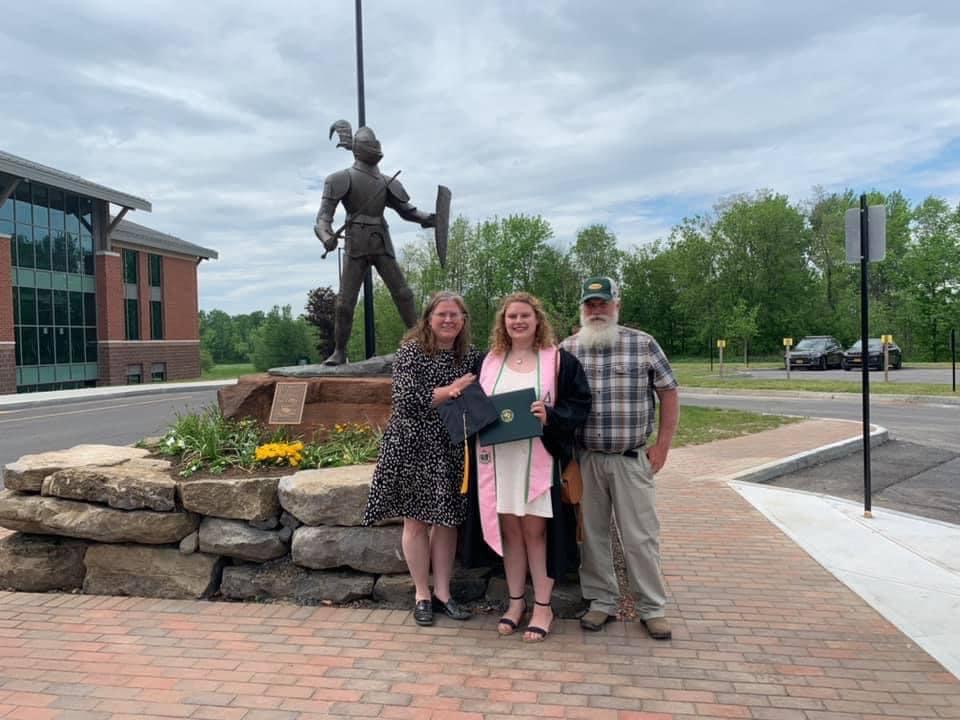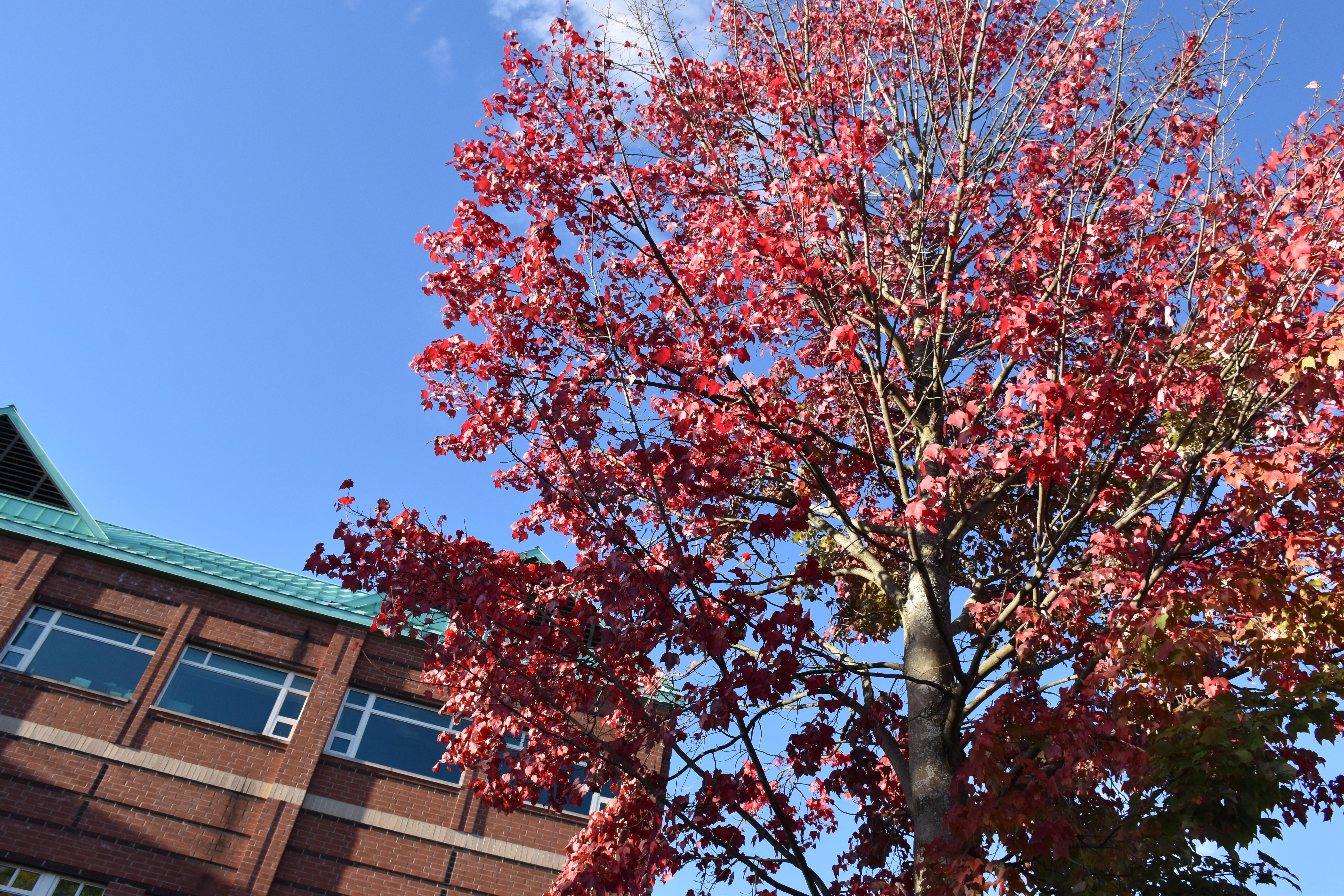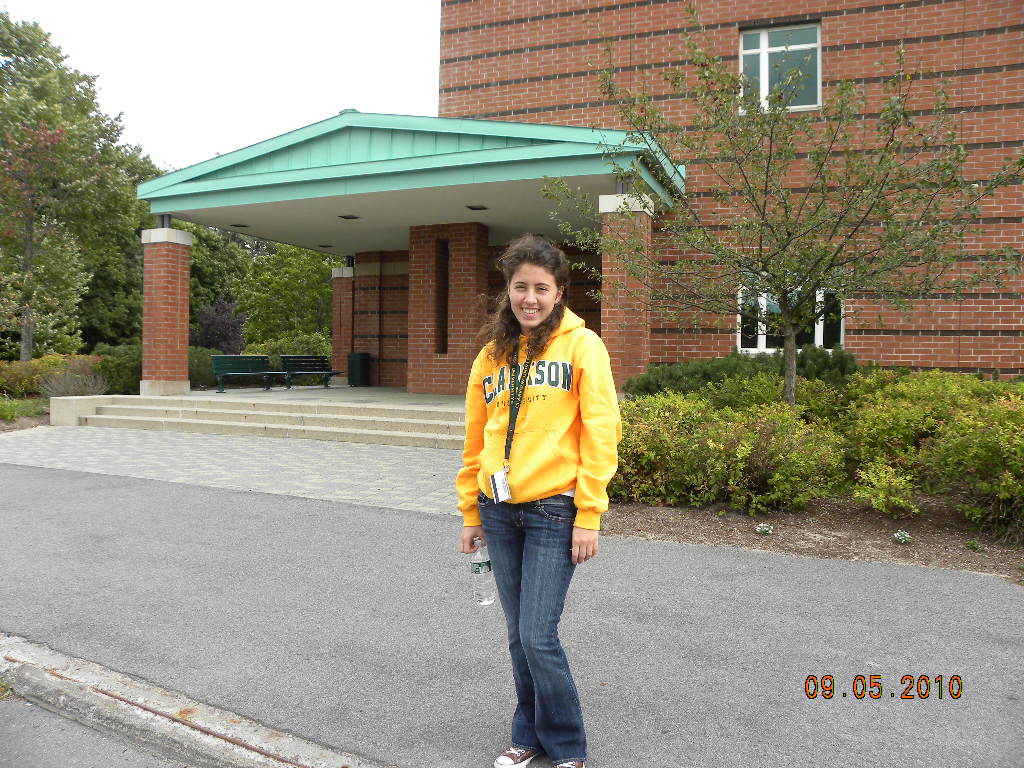Just one semester into my college career, I was sitting at a coffee shop in my hometown while on winter break. Clad in my Clarkson sweatshirt, a man approached me and asked if I attended Clarkson. It turned out that he had graduated from Clarkson a few years prior, and he asked about my field of study. When I mentioned my psychology major, he was shocked and replied with, “Aren’t there better places for psychology?” To that, I can only share my experiences from these past four years.
It’s true, Clarkson is primarily renowned for engineering, as I hear every time I explain my choice of major. My Clarkson experience began at age 17 in The Clarkson School, but rather than moving on to another university for my sophomore year (something all TCS students have the option to do), I ultimately decided to stay for the Psychology program. I had been interested in studying the brain and mental illnesses for as long as I can remember, so naturally, a psychology major made sense. Over the years, I picked up a second major in mathematical economics and a minor in project management.
Academic flexibility
When I started at Clarkson my goal was to go on to graduate school to pursue a Ph.D. in Clinical Psychology. As I’ve taken more advanced courses, especially through the David D. Reh School of Business, my interests have broadened. Now, I have a job in project management lined up for after graduation. Fortunately, Clarkson has quite a bit of flexibility within most academic tracks, allowing students to switch between majors, double major, and add minors as you expand your interests. Considering my interest in graduate school, it made sense to attend a school with a focus on research. Every professor in the Psychology department has their own lab, ranging from cognitive neuroscience and social psychology to diversity studies. And though we don’t have a graduate Psychology program, each lab is staffed by undergraduate research assistants – at most schools this would be unheard of!
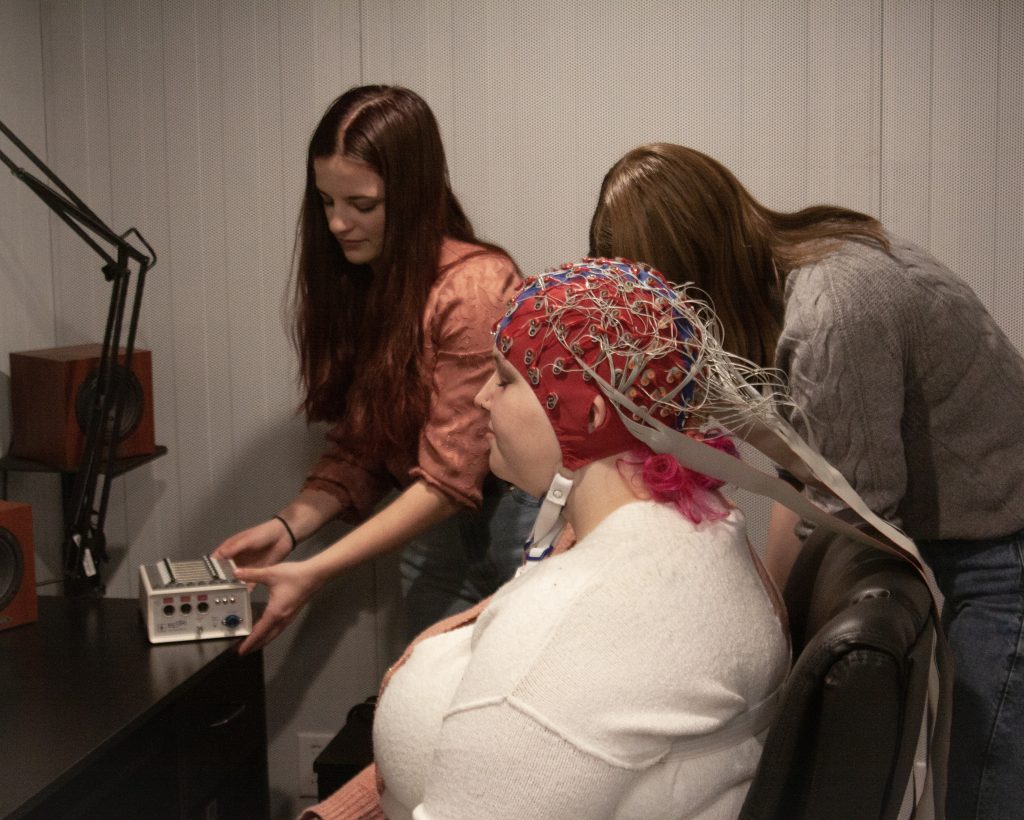
Research projects
I currently work as a research assistant in both the Hearing and Attention Lab under Dr. Lauren Petley and the Motivation and Emotion Lab under Dr. Lisa Legault. I approached Dr. Petley during the Spring semester of my freshman year about working in her lab. She took a chance on me, and I quickly began work on an online study that would later comprise a database of engaging stories to be used for auditory research. Three years later, I just finished presenting that very research at the American Auditory Society Conference in Arizona. This was an amazing opportunity to connect and network with industry and academic professionals. I learned so much within the auditory field. I have run countless participants through auditory flanker tasks – a traditionally visual task that we recreated auditorily, learned to use an electroencephalogram (EEG) – a test that measures the electrical activity in the brain, and created questionnaires to measure attention to engaging stories.
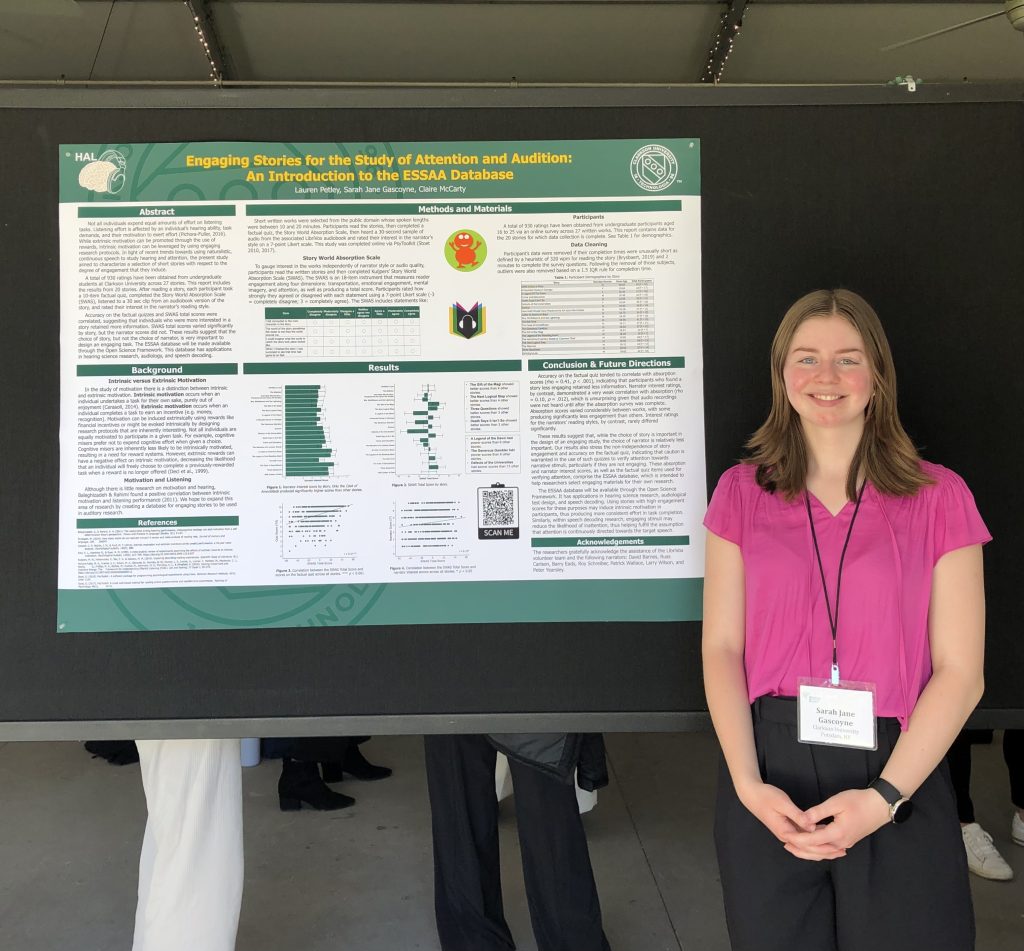
Lately, I spend most of my time with the Motivation and Emotion Lab working on my thesis on the motivational predictors of psychopathy. This project was initiated about ten years ago by another Clarkson School student, but was never completed. I approached Dr. Legault about working on the psychopathy dataset for my thesis. Over time, we decided to focus on the relationship between an individual’s social environment, their sense of autonomy, and their psychopathic traits. The rest of my time is spent working in tandem with other research assistants on a focus group study that investigates why people are motivated to be nonprejudiced.
Internship opportunties
In the past, the Psychology department partnered with the St. Lawrence Psychiatric Center; students who were accepted into the program would spend one, eight-hour day each week for one semester shadowing clinicians in a hospital setting. Students are encouraged to pursue these opportunities on their own as well, either at the St. Lawrence Psychiatric Center, Reachout, Hospice of St. Lawrence Valley, or many other facilities. Part of each student’s graduation requirement at Clarkson is to complete some form of work experience. This can be completed either through a traditional internship, volunteering, or by participating in research with one of the professors. Either way, students must write a thesis, either with a focus on their research or an area of interest that relates to their job experience.
Faculty and peer interaction
The size of Clarkson’s psychology department is part of its advantage. Students within each academic cohort typically take the same classes at the same time, facilitating the building of connections with peers. There are two psychology-focused clubs within the department as well. The Clarkson Association of Psychology Students, or CAPS, is a psychology club that focuses on mentoring students and forming connections amongst psychology students. They have started a mentorship program that pairs underclassmen with upperclassmen. In addition, they host talks from professionals on what students can do with a degree in psychology – it’s a great way to get you thinking about the future and network. The second club, Psi Chi, is an invitation-based honor society for psychology students. The Psi Chi student board provides structured volunteer opportunities for students in Psi Chi and hosts fundraising events for local charities.
A great overall experience
My journey through Clarkson University’s Psychology department has been transformative and rewarding, to say the least. I found a passion for psychological research and met some amazing people along the way. The Psychology department has provided me with the perfect environment for personal and professional growth. With its supportive community, hands-on experiences, and an emphasis on undergraduate research, Clarkson’s Psychology program truly stands out as an exceptional place to begin a career in the field of psychology.

